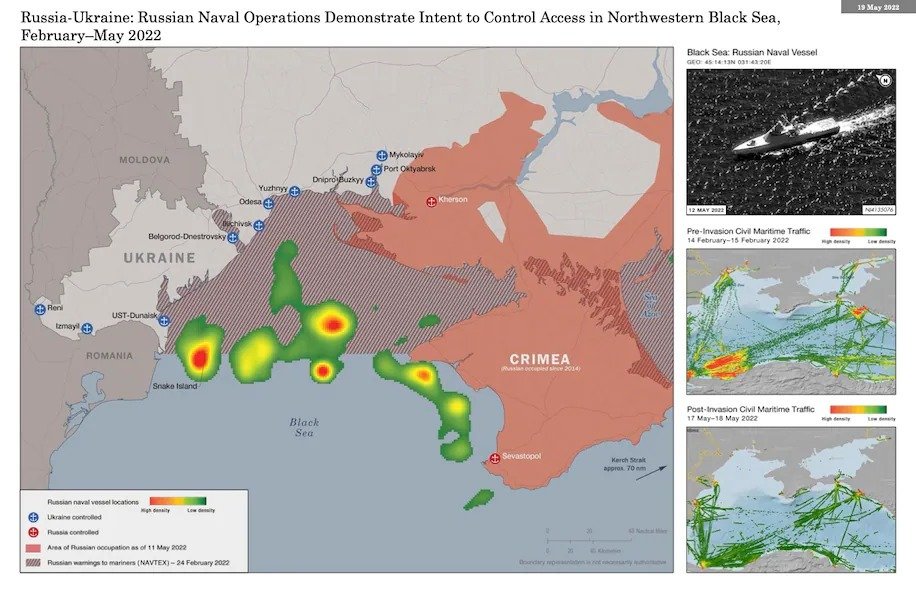
Freedom of navigation in the Black Sea, which is now obstructed by the Russian Federation, is inextricably linked not only to ensuring Ukraine’s security but also to averting a global food crisis and achieving regional stability. Surprisingly, the international community has done too little to address the issue and seems to ignore inefficiencies rooted in the current legal instruments as well as politico-military ways of dealing with such problems that have already been used elsewhere in the world.
Legal Aspects
On February 25, the Embassy of Ukraine in the United Kingdom of Great Britain and Northern Ireland sent a note verbale to the Secretariat of the International Maritime Organization (IMO). The document specified that, “… being guided by the requirements of the International Ship and Port Facility Security (ISPS), the Cabinet of Ministers of Ukraine has adopted an Order dated February 25, 2022 No. 183-r ‘On establishing the level of maritime security in sea and river ports of Ukraine, port facilities, vessels entitled to sail under the State flag of Ukraine.’” Consequently, Ukrainian ports were closed for entry and exit due to the MARSEC Level 3 Exceptional (Attack Imminent).
As a follow-up step, the Council of the IMO held an extraordinary session on March 10–11, agreeing to encourage the establishment, as a provisional and urgent measure, of a blue safe maritime corridor to allow the safe evacuation of seafarers and ships. The UN Security Council considered the issue of Ukrainian ports as late as May 19 and is yet to take meaningful action.
The most obvious problem with the response of international institutions is failure to acknowledge the flawed nature of the ISPS. It directly requires 148 states parties to the Safety of Life at Sea Convention “to detect security threats and take preventive measures against security incidents affecting ships or port facilities used in international trade.” Such preventive action has been taken by Ukraine to the best of its ability. Sure enough, it is not sufficient against the overwhelming naval force of the invader. Besides, Russia has expressly violated Article 225 of the 1982 UN Convention on the Law of the Sea by endangering the safety of navigation. No legal proceedings in this respect have been initiated against Russia at the International Tribunal for the Law of the Sea so far. And even if it had been done, the legal effort is ill-fitted to deal with the matter expeditiously and restore global food security.
Meanwhile, the UN Security Council could seek to establish a special subsidiary organ authorized to monitor the situation with navigation in the Black and Azov Seas. This step, however, can be long overdue and therefore of little consequence.
Politico-Military Precedents
In 2019, the United States initiated the establishment of the International Maritime Security Construct (IMSC) to protect the free flow of trade in the Middle East from threats emanating from an increasingly assertive Iran. The IMSC has its own task force – CTF SENTINEL – and a headquarters.
Oddly enough, the project brings together, among others, such countries as Estonia, Lithuania, Albania and, since March 2022, Romania. The absence of a similar initiative in the Black Sea appears to be counterintuitive, especially against the background of far greater threats and the participation of Romania – a country on the Black Sea coast – in the IMSC.
It is therefore a viable option to consider establishing a similar coalition of the willing among the countries of the Black Sea region to provide temporary overwatch of merchant vessels carrying Ukrainian grains abroad.
Silvester Nosenko, for the TDC